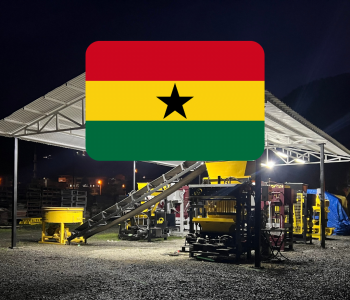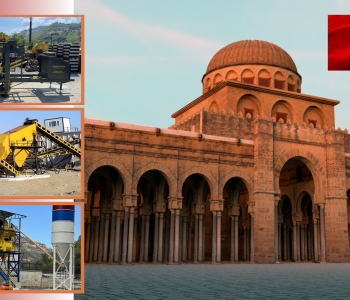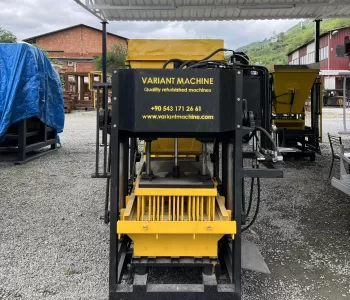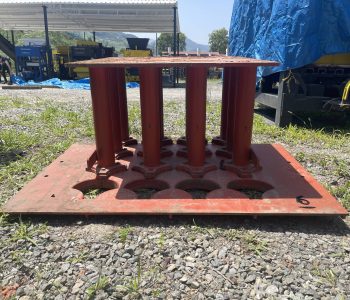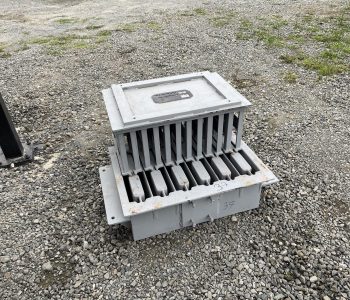Exploring Lagos: A Glimpse into Africa’s Most Vibrant City
Introduction
Lagos, Nigeria, stands as one of the most dynamic and densely populated cities in Africa. With its bustling streets, vibrant culture, and booming economy, Lagos exemplifies the rapid urban growth seen in many parts of the continent. This article delves into the history of Lagos, its current developments, and the significant role of the construction sector in shaping the city’s future.
Historical Overview
Lagos has a rich history that dates back to the early 15th century. Originally a small fishing village, it was established by the Awori people. The city came under Portuguese influence in the 15th century and later became a British colony in the 19th century. Its strategic location on the Atlantic coast made it a crucial port for trade. Lagos was declared the capital of Nigeria in 1914, a status it retained until 1991 when Abuja was designated as the capital. Despite this change, Lagos remains the country’s commercial and financial hub.
Modern Lagos
Today, Lagos is a sprawling metropolis with an estimated population of over 15 million within the city limits and more than 21 million in the greater metropolitan area. The city is a melting pot of cultures, with a diverse population representing various ethnicities and nationalities. It serves as a major economic center in Africa, driven by its vibrant port, thriving financial sector, and a burgeoning entertainment industry.
Current Developments
In recent years, Lagos has experienced significant growth and modernization. The cityscape is marked by a mix of high-rise buildings, luxury apartments, and expansive commercial centers. Key developments include the Eko Atlantic City project, a massive urban regeneration project aimed at creating a new financial district on reclaimed land along the coastline. Additionally, the Lagos Light Rail project promises to improve public transportation and reduce traffic congestion.
The Construction Sector
The construction sector in Lagos plays a critical role in shaping the city’s infrastructure and accommodating its growing population. The sector is characterized by a high level of activity, driven by both public and private investments. Major projects include residential complexes, commercial buildings, and infrastructure improvements such as roads and bridges.
Concrete Block Machines and Their Types
Concrete block machines are essential in the construction industry, particularly in Lagos, where rapid urban development demands a steady supply of quality building materials. These machines produce a variety of concrete blocks used in constructing walls, pavements, and other structural elements. Here’s a closer look at the types of blocks produced and the different machines involved:
- Concrete Block Machines: These machines are crucial for producing concrete blocks that form the backbone of many construction projects. They come in various configurations and capacities:
- Semi-Automatic Concrete Block Machines: These machines require manual intervention for certain processes. They are typically used for smaller production volumes and offer a balance between automation and cost.
- Fully Automatic Concrete Block Machines: These machines operate with minimal human intervention, providing high efficiency and consistent quality. They are suited for large-scale production and continuous operations.
- Types of Concrete Blocks:
- Hollow Blocks: Also known as hollow core blocks, these are commonly used for walls and partitions. They have a central core or voids, which makes them lighter and provides better insulation compared to solid blocks.
- Solid Blocks: These blocks are used in load-bearing walls and structural applications. They are denser and provide higher compressive strength.
- Paving Blocks: These blocks are used for surface paving, including sidewalks, driveways, and plazas. They come in various shapes and sizes and are designed to withstand heavy loads and weather conditions.
- Interlocking Blocks: These are designed to fit together without the need for mortar. They are used for both structural and decorative purposes and are particularly valued for their ease of installation.
- Curbstones: These blocks are used for creating edges and boundaries in roadways and pedestrian areas. They are typically placed along pavements and roadsides to provide a clear demarcation and support.
The choice of block type depends on the specific requirements of a construction project, such as load-bearing capacity, thermal insulation, and aesthetic considerations. Concrete block machines are designed to accommodate these varied needs, ensuring that the produced blocks meet the desired specifications.
Common Construction Materials and Machinery
In addition to concrete block machines, several other types of machinery play a crucial role in Lagos’s construction sector:
- Concrete Batching Plants: These plants are used to produce concrete in various forms, including ready-mix concrete. There are two main types:
- Stationary Concrete Batching Plants: These are fixed installations used for large-scale projects. They offer high production capacity and are suitable for continuous operations.
- Mobile Concrete Batching Plants: These are portable units that can be relocated easily. They are ideal for smaller projects or sites where mobility is a key requirement.
- Crushers: Crushers are used to process and recycle construction materials. They come in two main types:
- Stationary Crushers: These are fixed installations used for large-scale operations. They are typically used in quarrying and aggregate production.
- Mobile Crushers: These are portable units that can be moved to different sites. They are useful for on-site processing and recycling of construction debris.
Conclusion
Lagos is a city of contrasts, blending historical significance with modern dynamism. Its rapid growth and development reflect its status as a key player in Africa’s urban landscape. The construction sector plays a pivotal role in supporting this growth, with advanced machinery and a diverse range of concrete blocks driving the city’s transformation. As Lagos continues to evolve, it remains a symbol of both the challenges and opportunities facing rapidly urbanizing regions.
